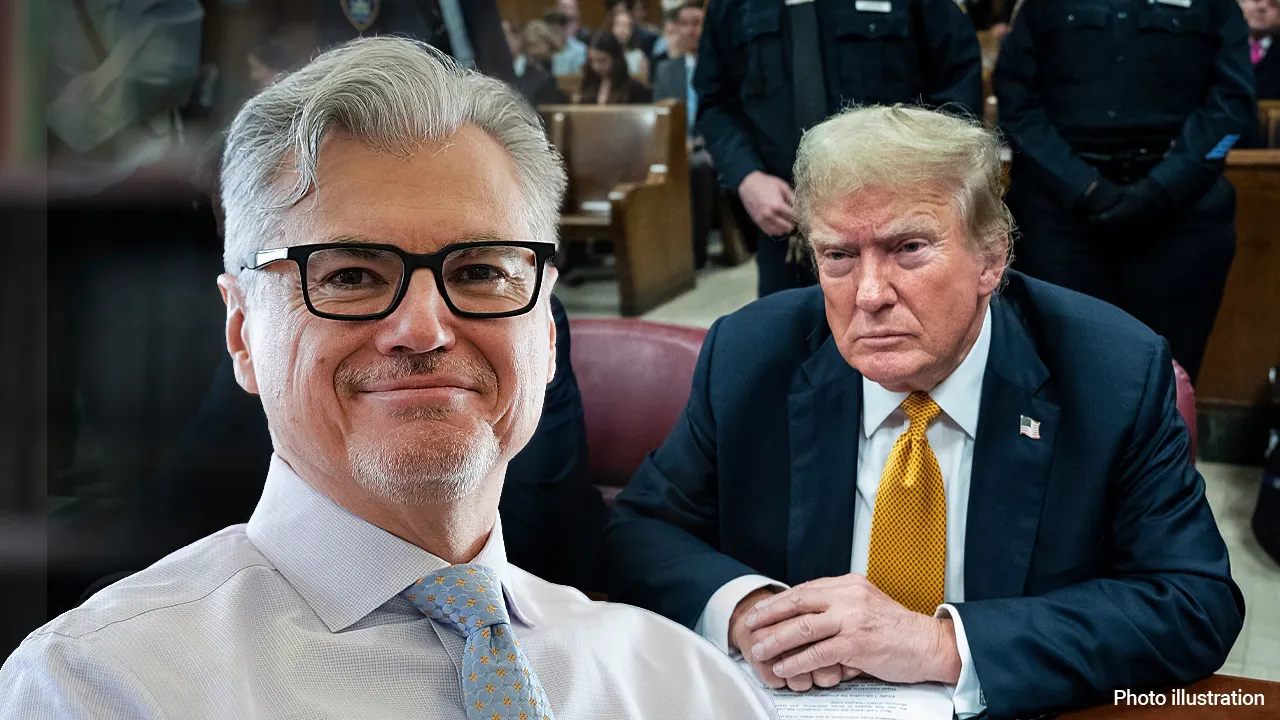Finance
How Money Psychology Affects Your Finances—and the Benefits of Financial Therapy

Historically, the financial industry has focused solely on financial literacy, says Haylie Castillo, MSW, LSWAIC, CFT-I™, owner of Castillo Financial Therapy. While financial literacy is absolutely necessary, it’s just part of achieving financial success. “The psychology and emotions around money have been the missing piece of the puzzle,” she says.
Castillo says she was raised in a very patriarchal household, where the message was that girls don’t do money. The goal for girls in her family was to grow up, find a man and marry him because he’ll take care of the finances. But she married a feminist.
“So all of that kind of started to shift in a very good way. I discovered financial education, financial literacy and, in my own personal financial education journey, realized that there was this missing piece,” she says. “This very important piece of having to explore my own psychological beliefs and money.”
That experience was what drove Castillo to specialize in money psychology and become a financial therapy provider.
What are money psychology and financial therapy?
While money psychology and financial therapy are intertwined, they are two distinct things. Money psychology is the thoughts and behaviors you have around money, according to Traci Williams, Psy.D., CFT-I™, founder of Healthy Wealthy Roots. And “understanding your psychology and emotions around money is essential for sustainable financial success,” Castillo adds.
Financial therapy “is that intersection of money and mental health—being able to guide and support people, being able to unpack the root causes behind their negative money mindsets and negative financial behavior,” Castillo says.
You may also see the terms “wealth psychology” or “wealth therapy,” which are slightly different from money psychology and financial therapy. Williams says that anyone of any socioeconomic background can benefit from financial therapy. Wealth therapy, on the other hand, pertains to concerns specific to high net-worth individuals, such as the feelings of guilt sometimes associated with inherited generational wealth.
Our psychology affects how we treat money
“Morgan Housel wrote the book The Psychology of Money, and he said that money is influenced more by your psychology than finance,” Williams says. Williams and Castillo point to three main influences on our relationship with money: our lived experiences, emotional health and mental health.
Perhaps you grew up in poverty and now you hoard money to give yourself some semblance of financial security. Maybe, like Castillo, you’re a woman who grew up in a house where only the men handled the finances, and now you don’t know how to manage your own money. Or perhaps money was of no concern growing up, but now you’re in debt because your current income doesn’t allow for the kind of spending you saw as a child. Whatever your situation, these are all examples of your money psychology being influenced by your parents and caregivers—your lived experiences.
In terms of emotion, does retail therapy ring a bell? Individuals who have difficulty regulating their emotions may turn to shopping as a way to cope or feel better, Williams says. In fact, research from Daniel Kahneman, Ph.D., shows that many of our decisions are based on emotion and automatic reactions rather than logic.
And, when it comes to mental health, Williams says individuals who have depression, ADHD or another diagnosis may struggle with their money as well.
“Having the understanding that money is inherently emotional and psychological, I believe, is key to being able to unlock and access those root causes behind our financial behaviors and therefore create the financial success that we are wanting in our lives,” Castillo says. One way to unlock those root causes? Money scripts.
What are money scripts?
Money scripts “shape the way in which we use money, what we do with money, how we view money,” Williams says. Just as the Enneagram can provide insights into your personality, knowing your money script can help you really understand your relationship with money and how you can work toward making that relationship healthier. “Typically, these are formed in childhood. They’re handed to us by our parents or caretakers. They’re given to us by society,” Castillo explains.
While Williams says there are a few trains of thought around money scripts, she specifically points to research done by Brad Klontz, Psy.D., CFP®, and Ted Klontz, Ph.D. They’re a father-and-son team who are considered pioneers in financial psychology and who founded the Financial Psychology Institute. Brad and Ted’s research identified four distinct money scripts, which can manifest in numerous thoughts that influence your behavior:
- Money Avoidance: “I do not deserve money…. Money corrupts people…. It is hard to accept financial gifts from others….”
- Money Worship: “Things would get better if I had more money…. You can never have enough money…. Money is power…. Money buys freedom….”
- Money Status: “Money is what gives life meaning…. Your self-worth equals your net worth…. People are only as successful as the amount of money they earn….”
- Money Vigilance: “You should not tell others how much money you have or make…. It is wrong to ask others how much money they have or make…. Money should be saved not spent….”
Castillo, on the other hand, points to Tori Dunlap, founder of Her First $100K and author of Financial Feminist. “She has a few money narratives that specifically speak to women and people who have historically been marginalized by the patriarchy,” Castillo says.
How to determine your money script
Both Williams and Castillo say it’s important to check in with yourself and answer the following questions to suss out your money script:
- How did you grow up around money?
- How did your parents or caregivers relate to money?
- How does money make you feel?
- Why do you buy the things you do?
- Over the course of your working life, where has your money gone?
- If you had a magic wand, what would you change about your financial situation?
- What do you believe about money?
How financial therapy helps your money psychology
In short, “financial therapy helps people to make better use of their money to have a healthier relationship with their money,” Williams says.
For example, Williams mentions a client who grew up with financial insecurity. As a result, he had money anxiety and hoarded his money, even though he had a six-figure income. Williams says she helped that client recognize how much money he actually had, how much he needed to save to avoid the trauma of financial insecurity again and how much was left over to enjoy. They also worked together to understand what that enjoyment would look like and figure out baby steps to take to practice that enjoyment.
Financial therapy may help you reframe negative money scripts and replace them with a better mindset. That reframing and replacing “enables you to then be able to make sound financial decisions and have the freedom to sustain those sound financial decisions, like having an emergency savings [or] starting to invest,” Castillo says.
She shares a story of a client who was two years postdivorce. The client had recently started dating and was spending more on going out. She was also starting to feel out of control around money. Castillo worked with her to figure out her money values and align her financial goals with those values. After working together for about a year, Castillo was able to help the client get to a place where she now has a spending plan, automated investments and is saving for a down payment on a house. The client also got a new job along the way—because she wasn’t investing so much time and energy worrying about money, she was free to pursue a better career opportunity.
Signs financial therapy might be right for you
Wondering if you would benefit from financial therapy? Some signs it might help you are:
- You’re having a hard time handling money on your own, whether it’s putting together your own financial picture or recovering from your financial stressors.
- You have a hard time communicating with others about money.
- You’re experiencing financial anxiety. This can manifest in various ways, potentially including avoiding bills or pretending to be blissfully ignorant of your financial situation.
- You self-sabotage when trying to take steps toward correcting bad behaviors because you don’t believe you deserve financial stability or because you feel uncomfortable with having money.
How to find a financial therapy provider
Ready to find a financial therapist to help with your money psychology? The Financial Therapy Association is a great place to start. The website has a directory of providers, and you can search based on location, race, sexuality, your specific needs and issues, the providers’ qualifications and more.
Castillo stresses the importance of finding someone who is a licensed mental health professional. They will be able to use evidence-based techniques that are backed by research and science and are effective in dealing with the psychological and emotional patterns related to money. “Whereas a financial counselor or financial coach might be able to speak to money mindset in general, a licensed therapist or mental health professional is going to have specialized training to be able to help with deeper things like trauma, ADHD behaviors, other forms of narrative burdens and how that affects your behavior,” she says.
Once you’ve narrowed down your list of potential financial therapy providers, set up a consultation phone call. Providers may offer free consultations or trial periods to help you see if they’re the right fit for you.
How to know if a financial therapy provider is the right fit for you
Because financial therapy deals with two very vulnerable areas of your life—your money and your mental health—Castillo says it’s important to find a financial therapy provider who makes you feel safe and validates your lived experiences. “I want people to know that you deserve—and you can have a relationship with—a therapist or financial therapist who makes you feel safe,” she says. “The relationship that you have with your therapist is the primary factor in the effectiveness of that therapeutic relationship.”
To really figure out if a certain provider is the right fit, Castillo and Williams suggest talking about the following:
- Be upfront about your goals or problem areas you want to work through. Then ask if they have experience in those specific issues.
- Ask if there’s anything you need to bring to sessions.
- Ask about the process of working with them and what it will look like.
- If it’s important that they have experience working with folks of your specific intersectional identities, then ask about it.
Sure, finding a financial therapy provider might feel like a daunting process, especially when you’re already spending so much time and energy on negative thoughts and emotions around money. But the effort is worth it in the long run. After all, “dealing with your psychology and your emotions around money are essential for you to be able to experience sustainable change,” Castillo says. “Working with a financial therapist will help you be able to not only create a road map for your financial plan, but be able to sustain it to the end goal, whatever that looks like for you.”
Photo by GaudiLab/Shutterstock

Finance
‘Females In Finance’ Collective Marks 1 Year And 1000 Members At NYSE

FIF Collective marks one year and 1000 members at NYSE June 24th
Muriel Siebert, known as the ‘First Woman of Finance,’ was the first woman ever to own a seat on the New York Stock Exchange in 1967. She was a passionate advocate for gender equality and remembered as a woman who refused to take no for an answer. Known to have famously threatened the NYSE Chairman with the installation of a portable toilet on the trading floor if a women’s restroom was not granted, and her public appearances with her Chihuahua ‘Monster Girl,’ named in tribute to how neither one was intimidated by ‘the big dogs,’ she had an unyielding confidence and determination that cultivated a rare respectability for women of her era. So rare, she remained the only woman in a ratio of 1365:1 at the NYSE for over a decade.
FIF Collective
Fast forward 57 years later, and it seemed like the perfect fit for the ‘Female in Finance Collective (FIF), led by group CEO Meghan McKenna, to gather in the Muriel Siebel room at the NYSE on June 20th to celebrate its one-year birthday and surpassing its 1000 member milestone. The Collective, is described as ‘an invite-only, highly selective group of Founders, CEOs, CFOs, VPs of Finance, VC Partners, and leaders, with a mission to advance the profiles of women through board seats, job opportunities, networking, learning, and great parties around the world.’
McKenna, like Siebert, is described by many as a woman to whom it is impossible to say no. She is known for her brash humor, charming confidence, low tolerance for inequality, and unwavering belief that change is possible. She equates these attributes to her college basketball career and her humble upbringing in the Bronx as the daughter of a New York Police Officer. “I’ve always stayed true to what I know is right and stood up for others around me,” she says, “that hasn’t always been an easy path to take. I have worked in teams where I was told I was ‘tough to manage,’ just for being honest. But I stay true to my values. We owe that to ourselves and other women.”
McKenna, who founded FIF shortly before starting a new role as a Managing Director at Stifel Bank, says that although the idea had floated in her head for many years, it was the pause between roles that gave her the headspace to make it happen. Yet she was not ready to exit a career she loves and was looking for a home to combine her experience, talent, and FIF, which she found at Stifel. “This is an industry that can be more performative than meaningful when it comes to gender equity, but Stifel has walked the walk when it comes to supporting women,” she says. “My network is my net worth and the team at Stifel really understand and support that. They see the broad industry value FIF creates for everyone.”
FIF founding team, From left: Christian Brosnan, Amy Kux, Jean Brosnan, Meghan McKenna, Angie … [+]
She says FIF was born after two decades of seeing countless gaps and lost opportunities for women and bottom-line impacts on business. “Women are not progressing at a rate that makes sense for their capabilities and industry needs,” she says. The effect of this is backed by data, such as the 2022 World Economic Forum’s ‘Global Gender Gap Report,’ which revealed females in finance remain one of the most untapped business resources. The share of women in global C-suite roles in the financial services industry worldwide reached 18.4 percent in 2023, and predictions from a recent Statista Study estimate a growth to 21.8 percent by 2031.
For McKenna and the team at FIF, the idea of waiting another near-decade for a mere 3.4 percentage point increase in female representation is not a reality they are willing to accept. Yet the trillion dollar question remains, how can we improve this? While there is no magic bullet solution, they believe the right place to start, is to look to each other and initiate a collective effort for change.
The cost equals the commitment
FIF is not alone in this mission. There has been a widespread proliferation of communities and programs promising to empower women and accelerate their professional success, an approach many consider crucial for women. Yet unlike many of these networks, which incur sizable membership fees and restrict their events to women, FIF takes a different approach. McKenna says she wanted a ‘personally free network for qualifying women. “This is a network of decision-makers and investors who bring merit she says, “I want them to bring their passion to this mission at no cost but their commitment to cultivate change.”
A strategy for sponsors and allies
Instead, the monetization will come via paid talent matching and a sponsorship program for events and seminars open to men and women. This strategy appears to work well for McKenna, who has fostered a growing partner ecosystem of over 30 sponsors in year one, including names like Deloitte, Amazon, KPMG, Samsung Next, Netsuite, Davis Polk, and Ramp, hosted 12 events across the cities of New York, San Francisco, Boston and Washington DC.
FIF sponsors gathering at NYSE to mark 1 year From left: Iris Chen- Cross Country Consulting, … [+]
Ken Egan, Partner at Cross Country Consulting, shares that he finds this approach effective as it focuses on bottom-line impacts and brings others along on the journey. In doing so, there is an organic allyship, something that critics of female-only networks often highlight as a missing link. “I have attended events and seen the value FIF brings,” he says, “This is a tough industry for women, and businesses in knowing how best to support but often showing up is half the battle. FIF forces people out of their comfort zones in a healthy way and creates a conscious and intentional level of connection.”
The burden of proof over potential
For venture capitalist Marissa Hodgdon, CEO of Sidelines.Vc, the nature of that intent is critical. She shares that a key challenge women in the finance industry face is the burden of ‘proof over potential.’ The ‘you know what you know’ effect that has worked very favorably for white males, who continue to receive more than 90% of annual VC dollars. She believes they will continue to do so unless women create a new wave of intentional change. Hodgdon, who is partnering with FIF to bring investment and advisory opportunities to the Collective, says, ‘we need to be targeted in putting opportunities for advisory roles and investment in front of women. FIF is the perfect forum for us to do this. A high caliber network of well-informed women creating change for themselves.”
The power of possibility
Much of the focus on financial leadership centers on business models—revenues, costs, niches, and leverage. However, what women often need are new mental models. Gaingels CEO Jennifer Jeronimo sees her firm’s partnership with FIF as a catalyst to create a new sense of possibility. Addressing the audience at the NYSE event, she gave the analogy of Roger Bannister, who shocked the world with the power of the possibility by breaking the record for the four-minute mile, once deemed hopelessly impossible, yet achieved by over 1000 runners since. Jeronimo wants to bring that same power of possibility to women in the VC realm and diversify the face of an industry that often looks and sounds the same.
FIF Collective CEO Meghan McKenna joins Judy Shaw Floor Talk at NYSE June 20th 2024 to celebrate 1 … [+]
What’s next for FIF?
Seaaoned finance exec and fractional CFO Amy Kux, a founding member of FIF says, “I have been part of many networks over the course of my career, but FIF is one of the only communities that promotes helping one another as its mission, and we cannot waver on that.”
This is an important factor for McKenna and the team at FIF as they look to the future and consider opportunities to grow the collective across new cities in the USA and international . McKenna says they will not put scale above substance and instead stay focused on their core values and strategic objectives by continuing to listen to one another. “We are a group of women who have created this as a labor of love and bootstrapped our way to now. We are not salaried, we do this voluntarily and most of us have full time jobs. Of course we want to grow and monetize to better resource and reinvest, but for now our core focus is not on headline growth but ensuring we maintain a high caliber community. That is what makes FIF so impactful.”
Muriel Siebert once said, “you create opportunities by performing not complaining.” For the women at FIF Collective this is a mantra for the next stage, as they look to build a future for females in finance by proving the power of connection, and collectively challenging the status quo.
Finance
These 2 Finance Stocks Could Beat Earnings: Why They Should Be on Your Radar

Wall Street watches a company’s quarterly report closely to understand as much as possible about its recent performance and what to expect going forward. Of course, one figure often stands out among the rest: earnings.
Life and the stock market are both about expectations, and rising above what is expected is often rewarded, while falling short can come with negative consequences. Investors might want to try to capture stronger returns by finding positive earnings surprises.
Hunting for ‘earnings whispers’ or companies poised to beat their quarterly earnings estimates is a somewhat common practice. But that doesn’t make it easy. One way that has been proven to work is by using the Zacks Earnings ESP tool.
The Zacks Earnings ESP, Explained
The Zacks Earnings ESP, or Expected Surprise Prediction, aims to find earnings surprises by focusing on the most recent analyst revisions. The basic premise is that if an analyst reevaluates their earnings estimate ahead of an earnings release, it means they likely have new information that could possibly be more accurate.
Now that we understand the basic idea, let’s look at how the Expected Surprise Prediction works. The ESP is calculated by comparing the Most Accurate Estimate to the Zacks Consensus Estimate, with the percentage difference between the two giving us the Zacks ESP figure.
In fact, when we combined a Zacks Rank #3 (Hold) or better and a positive Earnings ESP, stocks produced a positive surprise 70% of the time. Perhaps most importantly, using these parameters has helped produce 28.3% annual returns on average, according to our 10 year backtest.
Stocks with a ranking of #3 (Hold), or 60% of all stocks covered by the Zacks Rank, are expected to perform in-line with the broader market. Stocks with rankings of #2 (Buy) and #1 (Strong Buy), or the top 15% and top 5% of stocks, respectively, should outperform the market; Strong Buy stocks should outperform more than any other rank.
Should You Consider AGNC Investment?
The last thing we will do today, now that we have a grasp on the ESP and how powerful of a tool it can be, is to quickly look at a qualifying stock. AGNC Investment (NASDAQ:AGNC) holds a #3 (Hold) at the moment and its Most Accurate Estimate comes in at $0.56 a share 27 days away from its upcoming earnings release on July 22, 2024.
AGNC has an Earnings ESP figure of +5.66%, which, as explained above, is calculated by taking the percentage difference between the $0.56 Most Accurate Estimate and the Zacks Consensus Estimate of $0.53. AGNC Investment is one of a large database of stocks with positive ESPs.
AGNC is just one of a large group of Finance stocks with a positive ESP figure. Healthpeak (NYSE:DOC) is another qualifying stock you may want to consider.
Healthpeak is a Zacks Rank #3 (Hold) stock, and is getting ready to report earnings on July 25, 2024. DOC’s Most Accurate Estimate sits at $0.44 a share 30 days from its next earnings release.
For Healthpeak, the percentage difference between its Most Accurate Estimate and its Zacks Consensus Estimate of $0.44 is +1.15%.
Because both stocks hold a positive Earnings ESP, AGNC and DOC could potentially post earnings beats in their next reports.
To read this article on Zacks.com click here.
Finance
Sixteen Glasgow students take first steps towards finance careers with Aon

Professional services firm Aon plc has welcomed 16 Glasgow-area students to its 2024 Work Insights Programme.
The initiative aims to boost social mobility by offering 16 to 17-year-old students from lower socio-economic backgrounds valuable experience in the finance and professional services sector.
The students spent time in the York St office where Aon colleagues delivered the programme which included a real workplace challenge, speed networking where they met with colleagues across a variety of roles, panel discussions around career pathways, and a CV and interview skills workshop.
Schools participating in the initiative included Woodfarm High School, St Ninian’s High School, Lourdes Secondary School, Jordanhill School, Eastwood High School, Holyrood Secondary School, Wallace High School, Hillhead High School, and Our Lady’s High School.
Last year Aon delivered its inaugural Work Insights programme to 600 students across the UK including 12 in Glasgow. On completion of the programme, 82% of students surveyed confirmed that they were likely to consider a career in finance and professional services.
Ross Mackay, head of office at Aon Glasgow, said: “It has never been more important to provide young people from lower socio-economic backgrounds with the opportunity to gain insight into the world of work, particularly the financial and professional services sector, through quality work experience.
“Aon is committed to increasing representation of those from lower socio-economic backgrounds across the business.
“The Work Insights Programme enables young people to develop employability skills, learn more about different career opportunities, and supports the transition from education to employment.”
Mr Mackay added: “I want to thank colleagues from Aon Glasgow who volunteered their time to deliver the programme – without them it wouldn’t be possible. The students were a credit to the schools they represent and enthusiastically engaged in all activities.
“I hope they have a greater understanding of our industry and that the experience supports their future careers.”
Aon employs more than 250 staff across Scotland, providing clients, from SMEs to large corporates, with commercial risk, health, reinsurance and wealth solutions. As part of the programme, Aon partnered with state-funded schools in Glasgow to reach pupils who would benefit most – adopting a selection process based on diversity statistics, such as areas with a high percentage of free school meals.
-

 News1 week ago
News1 week agoIt's easy to believe young voters could back Trump at young conservative conference
-

 World1 week ago
World1 week agoSwiss summit demands 'territorial integrity' of Ukraine
-

 World1 week ago
World1 week agoProtesters in Brussels march against right-wing ideology
-

 News1 week ago
News1 week agoA fast-moving wildfire spreads north of Los Angeles, forcing evacuations
-

 World1 week ago
World1 week agoAl-Qaeda affiliate claims responsibility for June attack in Burkina Faso
-

 Movie Reviews1 week ago
Movie Reviews1 week agoShort Film Review: Willow and Wu (2024) by Kathy Meng
-

 News1 week ago
News1 week agoMass shooting at Rochester Hills splash pad: Everything we know
-

 Movie Reviews1 week ago
Movie Reviews1 week agoMovie Review: Top 5 Movies to Watch This Father's Day June 16, 2024 –
















